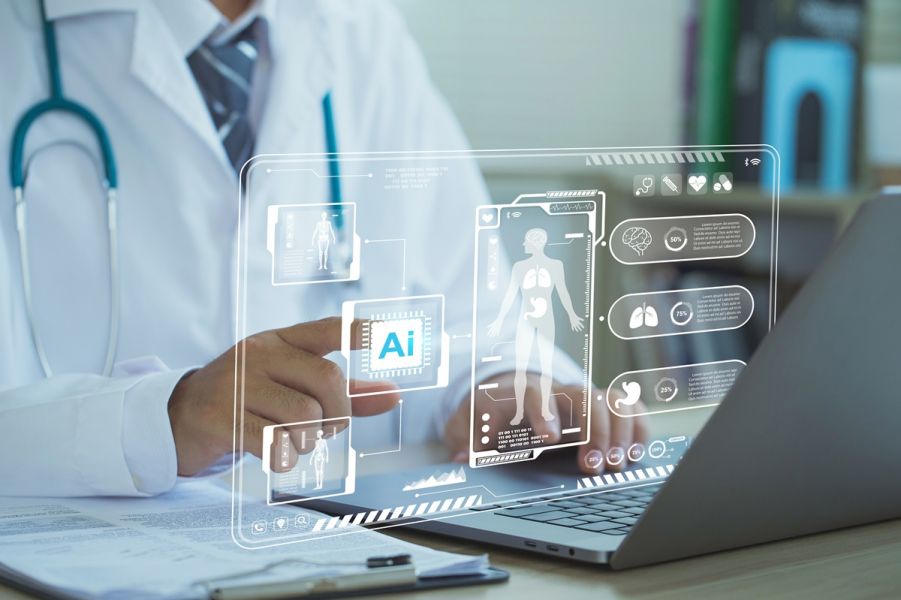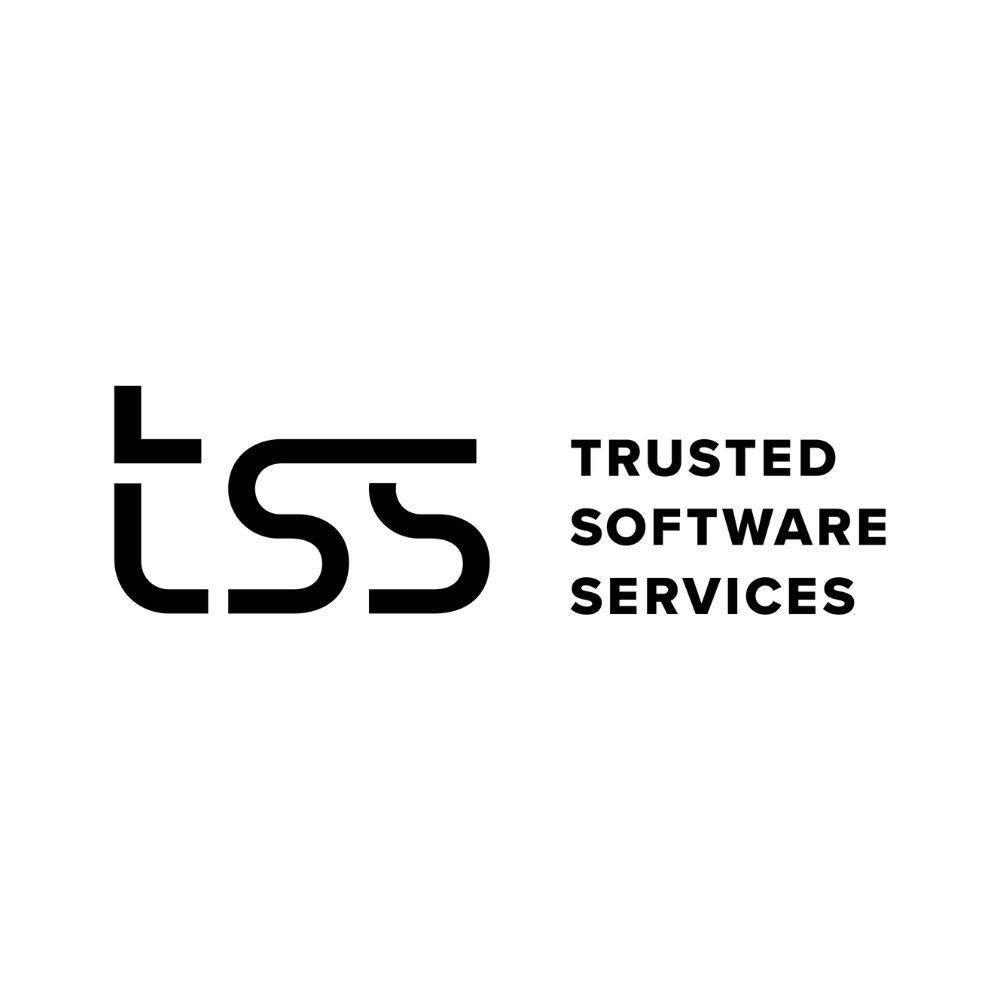Diagnoses in seconds and ultra-precise treatments – how AI will change MedTech?

Can we expect shorter lines at hospitals, better quality of healthcare, and treatments that can be done remotely, without leaving our homes in 2024? Definitely. AI advancement means doctors and nurses could react quicker in case of emergency, saving more lives and preventing potential negative consequences of accidents or serious illnesses. Let’s see some insights on AI in MedTech and what can be expected in months to come.
Imagine the world, where you can use your ordinary smartwatch or other personal device to measure all health parameters, then send reports to your doctor and receive individual recommendations and personalized medication doses. It also reacts to sudden changes in your body, assesses the risks, and notifies medical services if needed. Such technologies already become a reality.
Predictions on AI in healthcare
The statistics reflect the transformative journey we are a part of. According to MarketandMarket research, the global AI healthcare market is projected to reach $102.7 billion by 2028, with a compound annual growth rate (CAGR) of 47.6%. This shows the industry’s readiness and recognition of AI’s potential to transform patient care and operational efficiency.
Generative AI is predicted to be one of the biggest business and tech trends in 2024. MedTech can use LLMs (Large Language Models) for many tasks – from simulating test cases for research and development to psychology, for example by providing companionship for lonely patients.
We can expect to observe the increased number of legal regulations and ethical practices that will be made in the upcoming months. The healthcare sector operates on enormous amounts of sensitive and personal data, so it’s imperative to provide laws and guidance for businesses that want to deliver such products and services. In Europe, the EU Commission not only requires medical facilities to follow GDPR but also plans to introduce policies and acts that will regulate AI in general and the use of AI in healthcare.
The applications of AI in healthcare
Medical technology requires advancements at all times. They are not just milestones but transformative chapters in the ongoing narrative of healthcare. The COVID19 pandemic proved that we need solutions that will allow healthcare professionals to react quickly, prepare new treatments, and handle the increasing demand for their services. AI has unprecedented computational capabilities that can be a driving force behind the goal of improving patient outcomes.
Consider the remarkable effects of AI-driven diagnostic tools. Machine learning algorithms allow healthcare specialists to analyze vast datasets with incredible speed and accuracy, leading to more precise and timely diagnoses. A great example is TraumaScan, a project we’re working on, that aims to revolutionize the analysis of whole-body computed tomography. This AI-powered automated tool for quick full-body CT scans was made to support patients suspected of suffering from multiple organ injuries. The system consists of five modules: pre-processing of images, inference, visualization, reporting, and administration.
The urgency of identifying injuries promptly, particularly in cases of potentially life-threatening conditions, underlines the critical nature of this project. With limited access to radiology specialists, the TraumaScan project addresses the challenge of timely examination result analysis. The system facilitates the rapid identification of tissue damage, empowering diagnosticians to assess and respond to a patient's clinical condition more efficiently.
Another important argument for introducing AI into MedTech is personalization. We’re entering the era of personalized experiences. Healthcare is a sector that has a lot of space for personalization because it strongly depends on genetics, lifestyle, past conditions in the family, living areas, and many other factors. AI can be an ally for organizations that want to deliver tailor-made recommendations and treatments.
It is also worth mentioning how AI is a turning point when it comes to patient monitoring. Together with the Internet of Things (IoT) and advanced hardware, it enables real-time insights, proactive interventions, and better overall treatment results. AI is also widely used in drug development, allowing medical labs to prepare new, improved treatments and prepare doses that perfectly match patients’ needs.
Healthcare business improvements with AI
Automation is a topic that we want to discuss further since it not only transforms MedTech when it comes to patients but also has an extraordinary impact on internal operations, processes, and the overall work frameworks of health-related organizations. Thanks to AI, hospitals, medical facilities, and healthcare businesses can increase productivity, decrease costs, and make better decisions regarding work schedules and resource management.
Data is currently omnipresent, which means that harnessing its potential is a necessity. Making it a crucial goal should be a priority for MedTech decision-makers to grow efficiency and revenue. Predictive analytics powered by AI can be used to anticipate market trends, understand customer behaviors, and create valuable products or services. Instead of reactive strategies, healthcare businesses can proactively shape their future based on data-driven predictions. To be honest, it’s not only a benefit for the medical sector – it’s a true gem for all businesses, from finance to manufacturing.
Customer service seems to be a challenge for medical facilities due to the amount of work they have to handle. AI automation seems to be a perfect remedy for this problem. Chatbots, voice bots, email support, and ticket management can be done without human interference or with minimal control, freeing up time and energy for cases that require a personal touch and face-to-face interactions. AI can be responsible for fixing technical issues, handling queries, informing about case statuses, as well as scheduling appointments.
Strategic outsourcing as a catalyst for MedTech development
Thanks to our regular conversations with business owners and decision-makers, we're aware that providing sophisticated, well-trained AI solutions adjusted to business needs and customer demands is a challenge. Not every medical startup or healthcare organization can afford to build their own software development team with proper skills and expertise. That’s why we believe that in 2024, outsourcing will become an essential part of many MedTech strategies.
For many businesses, outsourcing might seem more expensive and time-consuming, but it’s actually the opposite. It provides a high level of agility while giving companies access to a wide pool of talented experts who can handle IT projects or support the existing teams with unique capabilities and knowledge. Software development outsourcing is a great way to reduce the costs of production, accelerate time-to-market, and embrace modern technologies.
In the dynamic landscape of MedTech, where rapid innovation introduction is key, outsourcing allows organizations to tap into an external source of expertise and stay at the forefront of technological advancements, becoming leaders in their respective niches. By entrusting reliable IT partners, healthcare businesses can concentrate their efforts on core initiatives like product and service development, customer experience, and operational improvement.
At the moment, only 31% of health care companies outsource software development needs. In comparison, the figure in the financial sector is as high as 72% according to Exploding Topics. We expect this number to grow significantly in 2024 and beyond. MedTech companies will look for providers capable of creating powerful AI solutions that will let them achieve their goals and support their efforts for a better future – the one with faster, more precise, and more personalized health services.
Authors:
Robert Kremser, CSO / Chief Sales Officer, Trusted Software Services
Adam Paczuski, CEO & Co-Founder, Trusted Software Services
Graphics: Adobe Stock, Pcess609
This article comes from magazine:
FOCUS ON Business #15 March-April (2/2024)
 Check the issue
Check the issue








